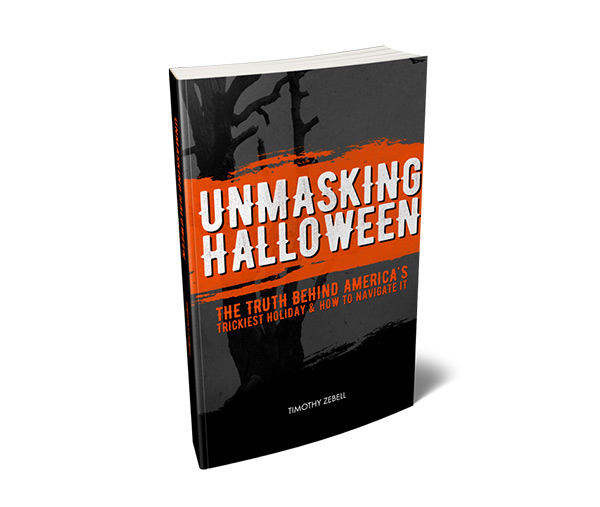In seasons of stability, metals, commodities, stocks, bonds, banks, and real estate, all may produce wealth for an investor, of course some better than others. However, this series has not focused on money in stable times, but money in a time of crisis.
With each of these modes of investment currently emitting warning signals, where can we turn for refuge, especially if in crisis there remains no traditional economic safe-haven? As such, the answer must be beyond our traditional economic worldview.
Although there are notable exceptions such as Ron Blue, Larry Burkett, and Dave Ramsey, rarely will a financial advisor direct someone to the Bible for advice. Yet the Bible is replete with financial counsel. In contrast to worldly wisdom, what insights does the Bible give us?
1. God is the source of our wealth
We deceive ourselves when we view our jobs, our pensions and 401Ks, and our investment portfolios as the source of our wealth. Deuteronomy 8:18 says, “God gives you the power to gain wealth”. Also, Philippians 4:19 says, “God will supply all your needs according to His riches in glory in Christ Jesus.” For many of us, our jobs and investments are merely the means that God chooses to use to supply our needs, but it is ultimately He who provides us with a place of employment, the skills necessary to accomplish our work, and wisdom for managing our money. The prophet Jeremiah declared, “I know, LORD, that a man’s way of life is not his own; no one who walks determines his own steps” (Jer. 10:23).
As our ultimate provider, it always remains God’s prerogative to change the means that He uses to supply our needs. If we are faithful to the Lord, then He will be faithful to us. Second Chronicles 16:9 says, “For the eyes of Yahweh roam throughout the earth to show Himself strong for those whose hearts are completely His.” And Proverbs 28:20 assures us that, “A faithful man will have many blessings”.
Further, when we place our confidence in Him who declares, “[T]he world and everything in it is Mine”, then we need never fear the collapse of economic institutions (Psa. 50:12). After all, it could be that God is simply calling in His loan. Romans 11:36 declares that nothing belongs to us; everything that we have is on loan from God, “For from Him and through Him and to Him are all things.”
Perhaps the economic calamity that threatens our nation is simply God’s means of reminding our nation of its true source of wealth.
2. Our greatest investment is in God’s kingdom
Like squirrels, we stock away our wealth in investment funds, hoping for the day when the miracle of compound interest and savvy financial management will finance our sunset years. While there is wisdom in planning for the future, many Americans have gone a step too far. If we are not careful, our focus can become entirely on fulfilling personal goals and desires, only giving God the leftovers.
Imagine for a moment what God’s bucket list for our lives might include. Most likely, a Florida winter home, a boat, luxury cars, and world tours would not make the list. Certainly these were not on Jesus’ personal bucket list when He was setting an example for us to model our lives after. Instead, Jesus willingly forsook many earthly pleasures in order to reach a maximum number of people with God’s truth. Matthew 8:19–20 recounts, “A scribe approached Him and said, ‘Teacher, I will follow You wherever You go!’ Jesus told him, ‘Foxes have dens and birds of the sky have nests, but the Son of Man has no place to lay His head.’”
Jesus’ focus was on people and on those things which were eternal in nature. He taught, “Don’t collect for yourselves treasures on earth, where moth and rust destroy and where thieves break in and steal. But collect for yourselves treasures in heaven, where neither moth nor rust destroys, and where thieves don’t break in and steal”(Matt. 6:19–20).Jesus had a kingdom perspective. He recognized the fleeting nature of earthly wealth, and He challenged us to use it to invest into God’s heavenly kingdom which is eternal. In Luke 12:33, Jesus urged, “Sell your possessions and give to the poor. Make money-bags for yourselves that won’t grow old, an inexhaustible treasure in heaven, where no thief comes near and no moth destroys.”
Missionary and martyr Jim Elliot once said, “He is no fool who gives what he cannot keep to gain what he cannot lose.” Our chief investment should be in God’s heavenly kingdom—even if it requires all that we have. It should be our foremost retirement plan. Jesus promises in Revelation 2:26–27, “The one who is victorious and keeps My works to the end: I will give him authority over the nations—and he will shepherd them with an iron scepter; he will shatter them like pottery—just as I have received this from My Father” (emphasis removed).
Financial investment funds can be precarious. Many people lost half their wealth in the financial crisis of 2008. Our hope cannot rest in such funds. Instead, we must place our hope in the secure and eternal promises of the kingdom of God. Whether we leave this world and enter the kingdom as a pauper or a king should matter little if we have steadily invested into this eternal future. Such a perspective can provide great comfort and security in an unstable economy.
3. Share your wealth
Jesus set the standard for giving when He relinquished all that He had so that we might become spiritually rich. The Apostle Paul reminds us in 2 Corinthians 8:9, “Though [Jesus] was rich, for your sake He became poor, so that by His poverty you might become rich.” Likewise, we should be willing to share our very lives as well as our wealth with others.
God has a heart for those in need. John the Baptist taught the people, “The one who has two shirts must share with someone who has none, and the one who has food must do the same” (Luke 3:11). And John questions in 1 John 3:17, “If anyone has this world’s goods and sees his brother in need but closes his eyes to his need—how can God’s love reside in him?”
Further, by all reasonable metrics, the Christians in Macedonia had nothing to give. Some might even conclude that they were themselves in need of assistance, and yet they pleaded for the opportunity to give toward the need of their fellow Christians in Jerusalem. This is because they gave themselves first unto the Lord to accomplish His will (2 Cor. 8:2–5). They considered themselves to be mere stewards of God’s money which is to be invested into His kingdom.
Strange as it may seem, God encourages us to give generously as a kind of heavenly insurance policy. When we seek to meet the needs of others, we join a network of people who will in turn seek to meet our needs in times of trouble.
Additionally, the Bible does teach some traditional economic wisdom:
1. Exercise wisdom in your spending and giving as God cautions against recklessly spending or giving all that you make
“The wise store up choice food and olive oil, but fools gulp theirs down” (Proverbs 21:20, NIV, emphasis added).
2. Avoid impulse buying, emotional or reactionary investing, and risky investments
Proverbs 21:5 says, “The plans of the diligent certainly lead to profit, but anyone who is reckless certainly becomes poor.” Our spending and our investments should be made with careful thought and attention.
3. Avoid easy money and get-rich-quick schemes
“Wealth gained hastily will dwindle, but whoever gathers little by little will increase it” (Proverbs 13:11).
4. Diversify your savings, especially as you consider the possibility of a crisis
Ecclesiastes 11:2 says, “Invest in seven ventures, yes, in eight; you do not know what disaster may come upon the land” (NIV). Financial investment is risky business. It is wise to be invested such that when one financial investment is down, another is up.
5. Pay your debts
Romans 13:8 says, “Owe no one anything, except to love each other.” Strive not to enter into debt. For those who are already in debt, pay off the debt quickly. Do not merely make the minimum payments.
6. Don’t focus on becoming rich
Proverbs 23:4 says, “Do not wear yourself out to get rich” (NIV). There is more to life than making money.
Conclusion
While God does teach some traditional economic wisdom, God does not supply His people with wealth in order for them to horde it and ultimately spend it on themselves. Furthermore, God does not place a premium on personal comfort. Instead, God promises to meet our needs—not necessarily our desires—if we will faithfully invest into His kingdom. While this does not provide the kind of refuge that is certain to preserve our standard of living, this does provide a most secure sanctuary in times of extreme trials.
The psalmist spoke of God as a safe haven when the entire world sinks into chaos at the end of this age, “God is our refuge and strength, a helper who is always found in times of trouble. Therefore we will not be afraid, though the earth trembles and the mountains topple into the depths of the seas, though its waters roar and foam and the mountains quake with its turmoil. … Nations rage, kingdoms topple; the earth melts when He lifts His voice. The LORD of Hosts is with us; the God of Jacob is our stronghold” (Psalm 46:1–3, 6–7).
Even as the Earth trembles, kingdoms fall, and the nations rage in battle, God stands fast as an ever-present hope and refuge in times of trouble. Regardless of what our future may entail, God can be trusted. Precious metals, commodities, bonds, stocks, banks, and real estate may fail us, but God will never fail us. Therefore, in the midst of a precarious economy that threatens massive market swings, wealth destruction, and even the collapse of the U.S. dollar, we are driven to God as our sole place of refuge.








